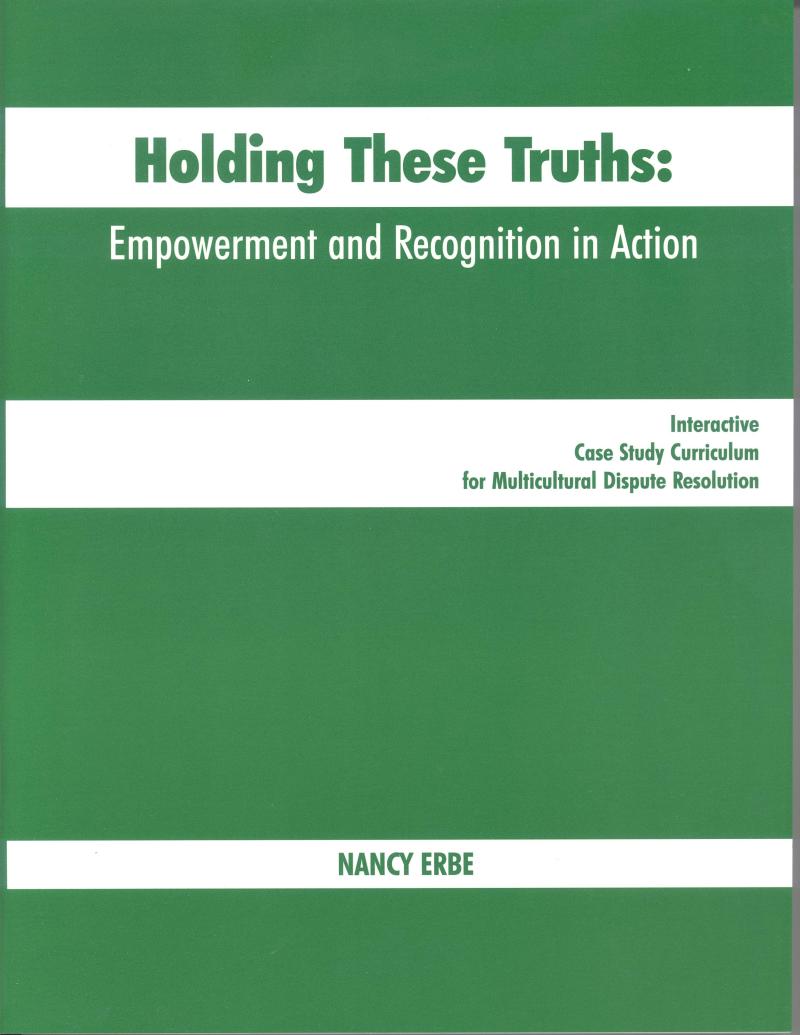"Many case studies in conflict resolution are only results oriented, which limits students and instructors from exploring the true-to-life complexities of the field. The studies in this text are process oriented. No preselected answers or results are provided, which models the obvious nature of actual conflict resolution. These case studies lead readers to challenge their own ethical awareness, instincts, and knowledge. They pose difficult, pertinent questions whose responses require careful reflection and research, such as 'Are you aware of different cultural perceptions regarding "interruption"?' and 'How does intimidation look, sound, and feel?' Case studies force readers to confront issues, both personal and impersonal, that they will inevitably encounter in real life conflict resolution scenarios.
"Being process oriented, the case studies presented in the text are helpful for instructors and students in many parts of the world. The principles debated and reflected upon are relevant to more than just the 'western' style mediator-they are applicable in numerous professional and cultural settings and prepare students for conflict resolution involving diverse actors, interests, and communication styles.
"After experiencing the realities of working in conflict resolution and peace building in the Balkans, I . . . have found [Nancy Erbe's unique lesson plans] reflected, more than any other classroom I was a part of, the realities of working in the field, and the difficulties of working with concepts such as 'violence,' 'peace,' and 'nonviolent conflict resolution' with individuals of different cultures."
-- Daniel Perez, Fulbright Scholar, Albania
"Professor Nancy Erbe introduces different levels and dimensions of conflicts, ranging from interpersonal to interethnic to international ones and offers valuable tools for mediators and arbitrators. The focus is on the fact that more and more global violence is interethnic or intergroup by nature and how 'citizen diplomacy' or what came to be known as 'second track diplomacy' by individuals and nonstate actors might bring about peaceful resolutions. The approach seems promising, especially with issues that have become intractable and where traditional international dispute resolution mechanisms can do little in terms of bringing critical social and political change."
-- Tenzin Bhuchung, Rotary World Peace Scholar

